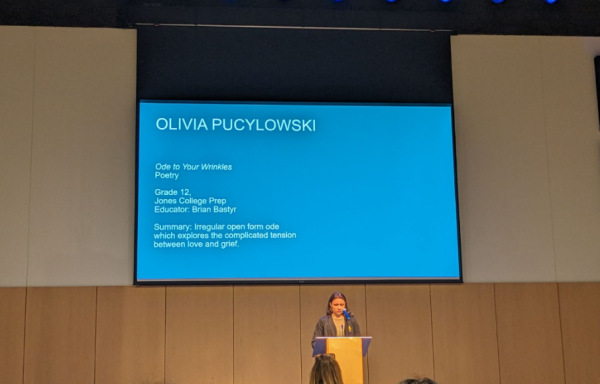Love Bites
Putting labels on 21st century relationships
A sample screenshot of typical messages sent between teenagers.
The dating game has left many feeling sideswiped. Over the course of the past couple decades, the traditions thought to be expectations when it came to going steady have become quite shaky.
Compared to the dating customs of 50 years ago, Anna Bianchi ‘18 said, “The boys were very respectful with the girls- they’d ask their parents for permission to do anything. Nowadays, when you’re dating someone, it’s just [to] show-off.”
These traditions, however, are subject to transform once key social pressures evolve and redefine what’s acceptable.
“Everybody always glorifies how people use to date in the 60s- when asking people out was a thing, way more than it is now,” said Nate Russell ‘ 17. “I feel like the wide range of relationships you can have now, like being in an actual relationship or being in a more open relationship, is good to have.”
Although more than just tradition has changed- the acceptance of former dating “taboos” has opened up the dating scene. With laws establishing legal equality, from marriage to citizenship, what a “normal” couple is has progressed to go beyond cultural, racial and gender limitations, allowing relationships to venture into many avenues.
“I would rather date today, because 50 years ago I probably wouldn’t be dating my girlfriend- she’s white and I’m half black,” said Jude McCarthy ‘18.
The way couples relate, though, has some students feeling a social pressure incomparable to that of the past.
“Personally, I am not a supporter of today’s hookup culture. I feel like dating was a simple concept 50 years ago; you were either dating somebody or you weren’t,” said Alex Lawson ‘17. “Now, it feels like there are less connections in modern relationships.”
This “hookup culture” that dictates the majority of today’s high school relationships, affects the length of time couples remain together as well.
“I feel like the mature kids that are our age can last years, but others last for about two weeks once the hookup dies for them,” said Colleen Kucharski ‘18.
The growing importance of physicality in a relationship has crept into many students’ self-image, as how you look has become a paramount aspect.
“As long as you’re curvy, but only weigh a hundred pounds, and have clear skin, nice hair, and a small waist, you’re good,” said Juliet Barber ‘18.
However, the pressure to partake in this physically-motivated type of relationship is not new to Jones. In a March 2011 issue of the Eagle Eye, a student reached out to the “Ask Dr. Jones” advice column, stating, “This guy keeps pressuring me to do PDA things to him in public. How do I tell him how I feel? I don‘t wanna lose my love!”
How students first interact with each other has changed since then.
“People are more into their phones than into actually meeting up with the person,” said Joe Margolis ‘19.
These basic human relations have changed drastically in the past decade. However, some core loyalties still stand. The principle of a century’s old adage “sisters before misters” still matters to many students.
“I think that girls should abide by it because I feel like we owe each other more loyalty than we do for a guy; in the end guys come and go, but friends are supposed to be there for your whole life,” said Kucharski.
However, this line you cannot cross has slowly faded over time with the introduction of, “The Talking Phase” : a period of time where there is no label and both participants are technically single. This purgatory between being friends with benefits and dating has no universal timeline amongst students, though.owe each other more loyalty than we do for a guy; in the end guys come and go, but friends are supposed to be there for your whole life,” said Kucharski.
“Some guys believe that once talking gets serious it’s just inherently a relationship, and they don’t need to make it official, verbally, but to girls, putting a label on it is still important,” said Barber.
Getting to know who a person is, though, is no simple task- mix in teenage hormones and emotional instability, and you’ve got a platform to abuse an otherwise beneficial period of time.
“It’s like the portal to a new dimension that exists for way too long, and some people use it as a stage to not be in a relationship,” said Russell. “I feel like if you use it as a stage to build upon something before you actually get into a relationship, then that’s a good talking phase.”
However, Jones is where students may go through and graduate from their entitled phase, idealistic phase, know-it-all phase, or party phase- but one thing is almost certain: they’ll all still be in the talking phase.

INTERESTS & EXTRACURRICULARS: Writing, black student union, makeup, and politics.
ONE WORD TO DESCRIBE ME: Tenacious
IN TWENTY YEARS:...








